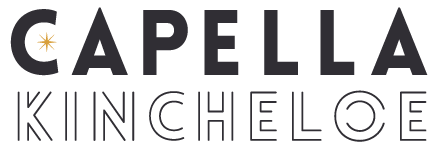What We Learned from Peak Financial Week
Last week we had five experts in the interior design field share their knowledge on finances. Here’s a recap of what we learned:
Brad Clinard, Certified Financial Planner
Embrace every financial foundation in your business, even when it is overwhelming. Would you advise a client to buy a home without a kitchen or bathroom?
The 3 key relationships that interior designers need for financial success - financial planner, business coach, and CPA bookkeeper.
Understanding the difference between goals and values - goals change everyday, but values are constant in your life. Plan your business based on your values, NOT goals.
Change your mindset from good debt/bad debt to acceptable/toxic debt - value increases over time is acceptable, value decreases over time is toxic.
How to reduce debt wisely - the avalanche method. Pay off debt with the highest interest rate, once that is paid off, then you can add that payment to the next debt payment.
Denise Peloquin, Certified Public Accountant & Certified Design Accountant
It does not matter what industry you are in, there absolutely is NO perfect software - find the software that fits your business best.
Never short yourself or your work - know your value and do NOT wonder if you are overcharging.
You do not need to be an accountant to understand accounting - take the time to learn the numbers in your business.
Understanding when someone is an independent contractor (hours are determined by worker, tasks are accepted case-by-case, workers use own methods) and when they are a W2 (hours are set by company, training is provided by employer as well as the process of workload, employer assigns workload and supervises).
Accounting is important for any business owner to understand and learn - you don’t need to become an expert, just like your client doesn’t need to be an expert in what they are hiring you for.
Ken McComb, Insurance Broker
Professional Liability protects you corporately but also individually.
Usual & customary is how insurance determines what to cover.
Never sub out services to a company that isn’t insured.
Stay away from helping clients with hiring subs & providing sub contract suggestions, don’t recommend insurance coverage amounts to clients - have them talk to insurance professional.
Negligent professional act, error, or omission - will trigger policy.
Litigation & mediation are better - arbitration is final and there is no discovery (other side has to share their materials, can’t appeal).
Rachel Gregg, Certified Public Accountant
Don’t allow yourself to get into the belief that you can’t make this a financially successful business.
Accounting tells us what already happened, but you may need a cash flow system to tell you where your finances are right now.
Have a good financial workflow.
Don’t act as a bank for your client!
Have a CEO First Mindset
Pay attention to your money.
Be consistent
Find a good bookkeeper that understands the industry.
Keith Granet, CEO Studio Designer
Having a solid business makes you more creative - because that is where you can put your energy.
Check-in with your bookkeeper regularly. You are responsible for your finances if you’re running your business.
Review financial statements monthly and analyze quarterly.
Learn to say no, be careful about the types of projects you take.
Telling clients to interview other designers shows confidence and can make clients want you more.
Look for work when you are busiest - the onboarding process can have a long timeline.
When building your team, hire first for culture and then skill.


